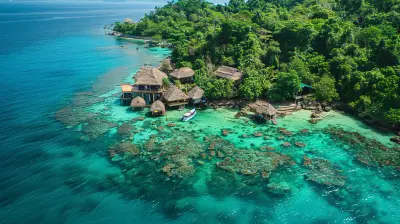Exploring Forgotten Cultural Traditions in Remote Villages
14 August 2025
Have you ever wondered what life might look like far from the glow of city lights and the buzz of tourist traps? What if I told you that tucked away in the world's most remote corners, there are time capsules of culture quietly surviving, untouched by modern mainstream influence?
Yep, we’re talking about those almost-mythical villages where ancient customs still breathe through daily rituals, unique languages echo in the streets, and stories passed down through generations shape the rhythm of life.
Let’s embark on a fascinating journey into these hidden enclaves, where forgotten cultural traditions are still alive—sometimes thriving, sometimes clinging on by a thread. Get ready to trade skyscrapers for straw roofs and fast food for centuries-old recipes. Sound like your kind of adventure? Let’s dive in.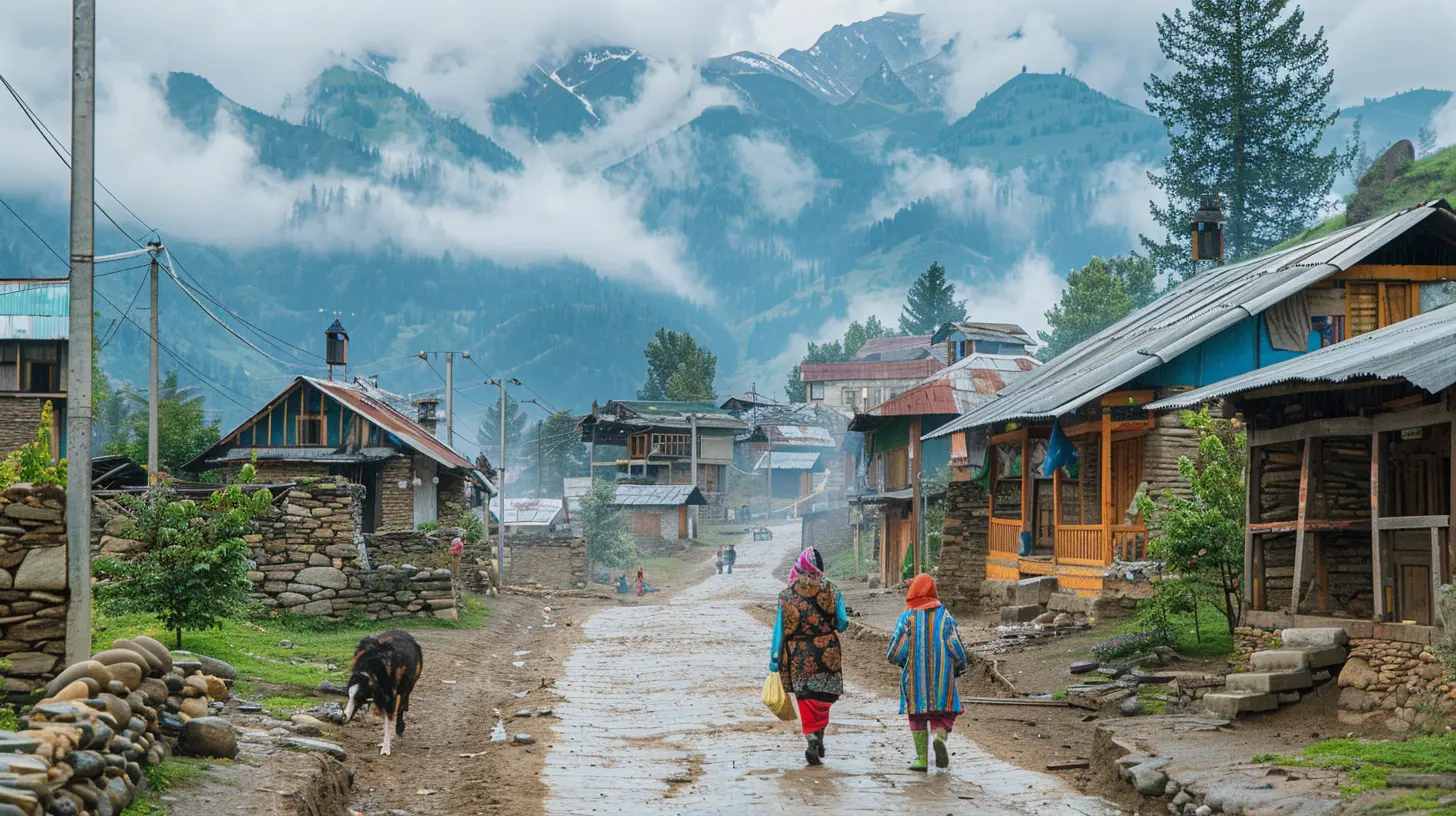
Why Traditions Get Forgotten in the First Place
Before we go globe-trotting, let's pause for a second. Ever asked yourself why these rich cultures are "forgotten" in the first place?Well, a lot of it boils down to globalization, urban migration, and let’s be real—our obsession with fast living. As younger generations move to cities for work, they often leave behind the slower, deeply-rooted cultural practices of their ancestors. Over time, rituals fade, languages die, and traditional clothes end up packed away in trunks—if not entirely thrown out.
And here's the kicker: what’s forgotten to the world might still be sacred to those who live it daily. Makes you think, right?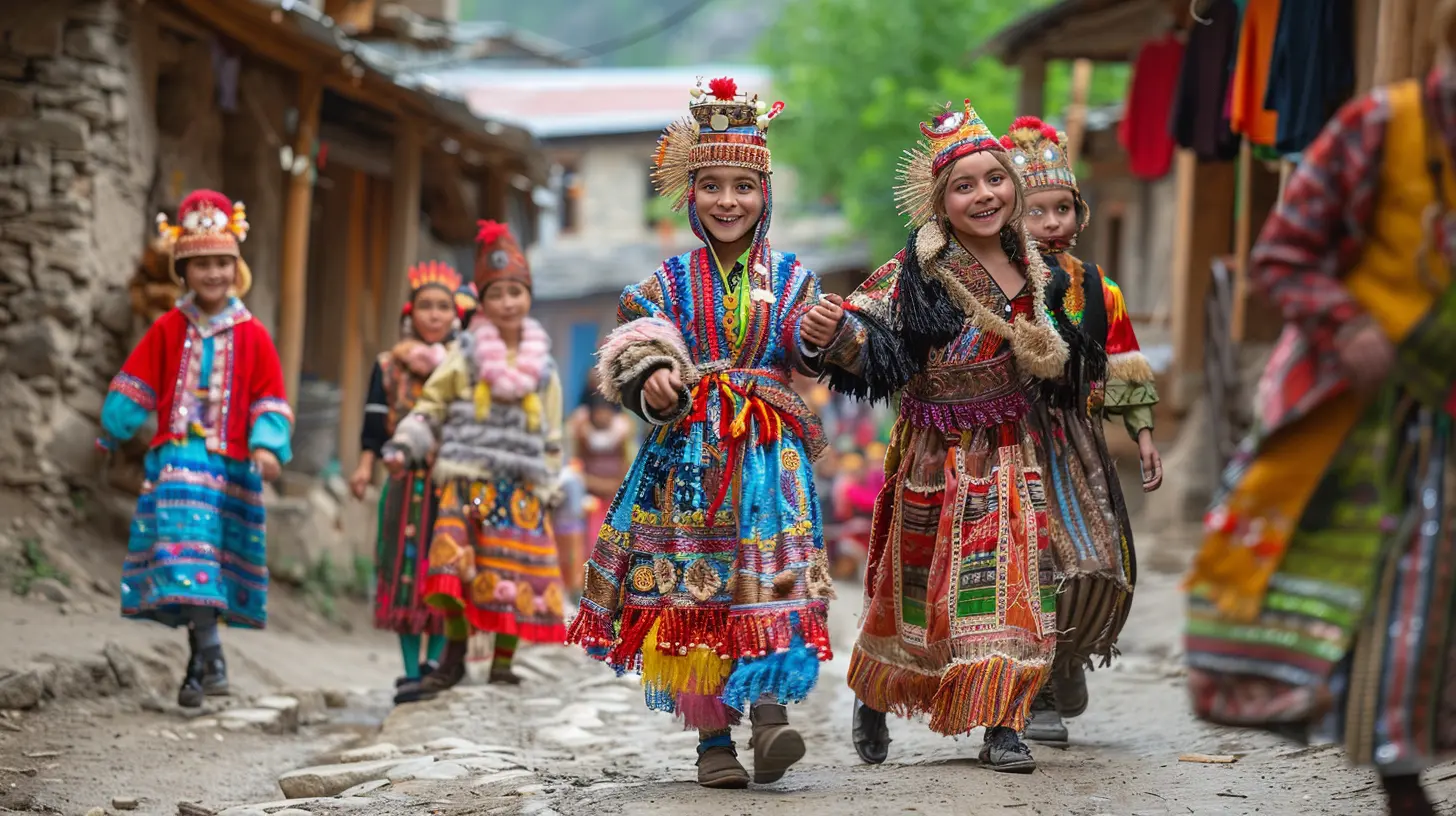
The Allure of Remote Villages
So why take the road less traveled?Honestly, there’s something deeply humbling about visiting places where time seems to stand still. It's not about Instagram likes or ticking boxes off a list. It’s about connection—to people, history, and a way of life that’s vanishing in plain sight.
Remote villages often hold traditions that date back hundreds, if not thousands, of years. And the guardians of these traditions? Ordinary people living extraordinary cultural lives.
Let’s take a world tour of some hidden gems where you can experience these forgotten traditions firsthand.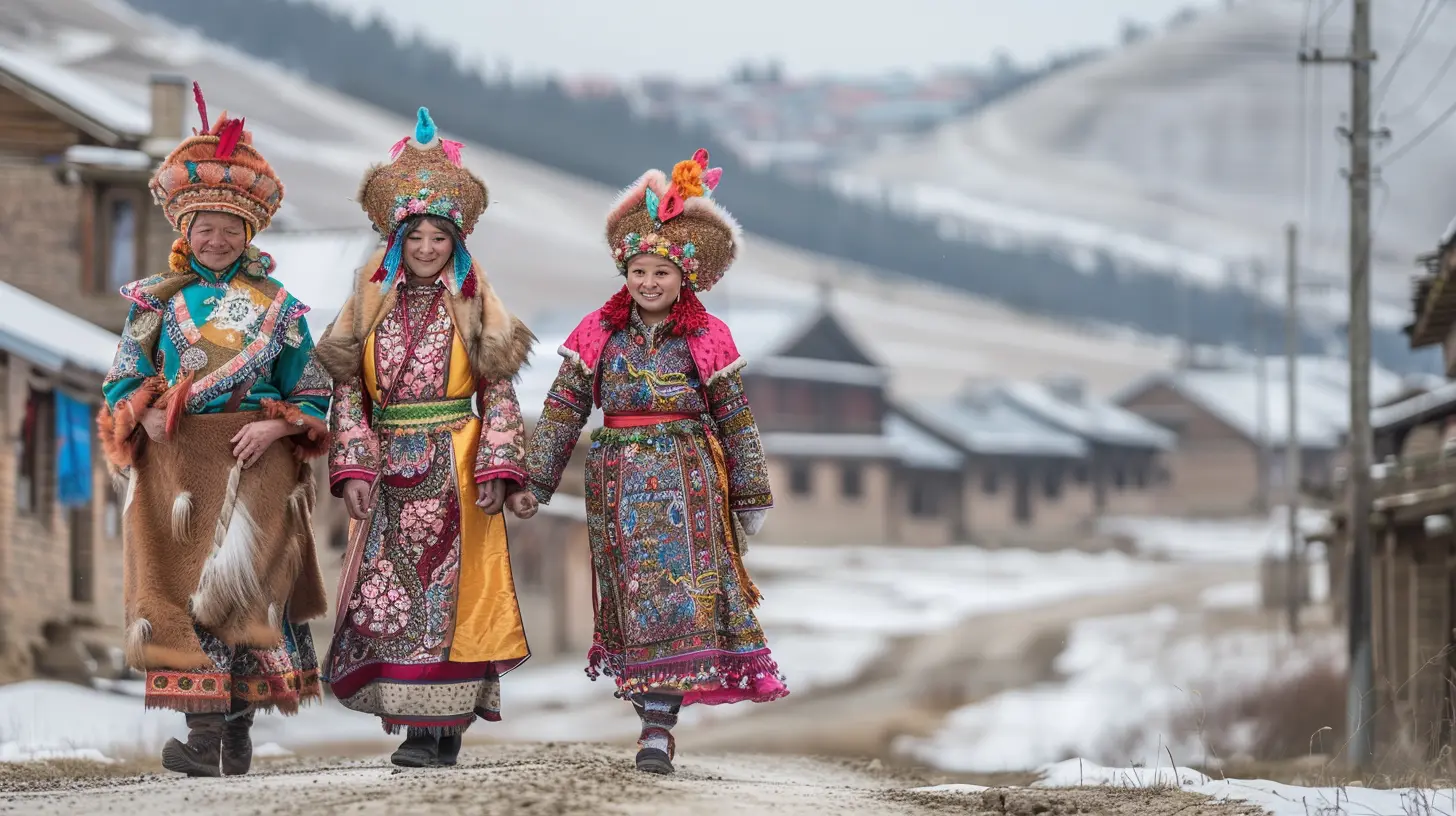
1. The Kham People in Eastern Tibet: Guardians of the Ancient Bon Religion
Imagine a place where monks chant in smoky temples, shamans bless travelers with yak-butter offerings, and prayers are etched into stones instead of apps. Welcome to Kham, a region in eastern Tibet untouched by time.What Makes It Special?
The Kham people are fiercely independent and have preserved pre-Buddhist Bon traditions that you won’t find anywhere else. They host sky burial ceremonies—an ancient practice that may challenge your Western sensibilities but is deeply spiritual and symbolic.Quick Tip:
If you’re heading here, brushing up on local customs is a must. Respect and humility will get you everywhere.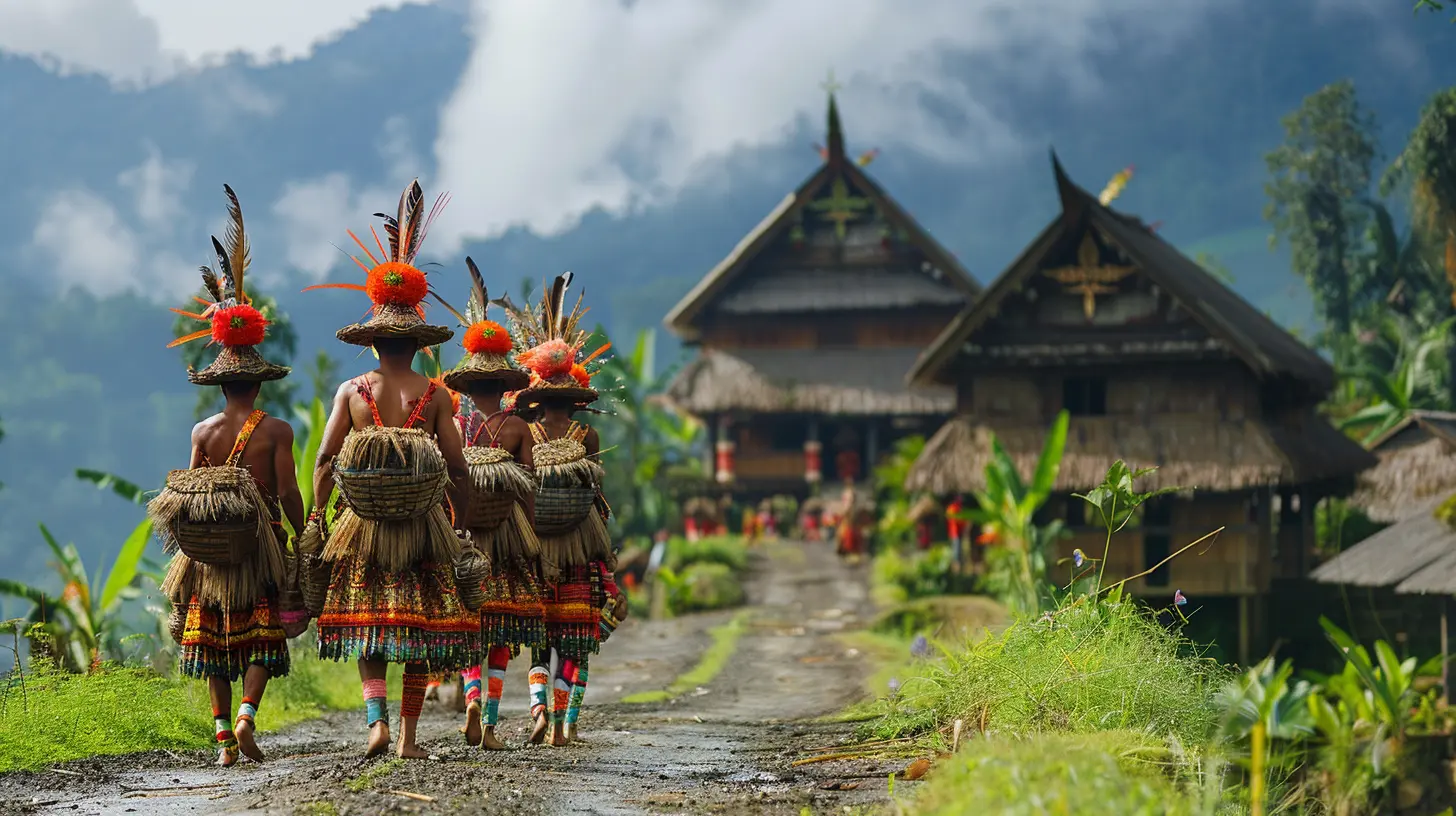
2. The Kalash Valley in Pakistan: A Living Museum of Pagan Traditions
Deep in the Hindu Kush mountains lies the Kalash Valley—home to the Kalasha people, one of the last non-Islamic tribes in Pakistan. Think brightly colored robes, wild festivals, and a language with no written form spoken by just a few thousand people.Why You’ll Be Mesmerized:
The Kalasha still practice a polytheistic religion with seasonal festivals, fertility rituals, and dances that date back to ancient Indo-Aryan traditions. Basically, it’s like stepping into a storybook.Heads Up:
Tourism is picking up here, so go now before the outside world changes too much of this cultural haven.3. The Himba of Namibia: Red Ochre and Ancient Beauty
Ever seen a photo of women coated in rich red clay? That’s the Himba tribe of northern Namibia, and their appearance is only the tip of their cultural iceberg.What’s the Story?
Using a mix of ochre and butterfat, Himba women coat their hair and skin to protect against the harsh desert sun. But this practice is more than skincare—it symbolizes status, age, and spirituality.Cultural Gems:
Their way of life is based on a deep connection with nature. With oral storytelling, ancestral worship, and a semi-nomadic lifestyle, the Himba are a striking example of resilience and cultural pride.4. The Karen Villages of Northern Thailand and Burma: Textiles, Traditions, and Tea
Forget touristy elephant camps for a minute. In the mist-covered hills of northern Thailand and Myanmar live the Karen people, specifically the subgroup known as the "Long Neck" women.Beyond the Neck Rings:
While the brass coils worn by women are visually striking, there's so much more to Karen culture—like backstrap weaving, harvesting tea leaves by hand, and language preservation efforts happening within these communities.A Word of Caution:
Cultural tourism here can be controversial. Ethical travel is key—choose community-run guesthouses and genuine experiences over photo-ops.5. The Tz’utujil Maya of Santiago Atitlán, Guatemala: Sacred Lakes and Ancient Weaving
Guatemala isn’t only about volcano hikes and coffee farms. By the shores of Lake Atitlán lies the town of Santiago Atitlán, home to the Tz’utujil people who carry on the rich, spiritual traditions of the ancient Maya.Cultural Highlights:
From vibrant traje (traditional dress) to the ceremonial figure Maximón (a trickster folk saint), this village blends Catholicism and ancient beliefs seamlessly. The weaving here is not only colorful—it tells a story, each thread a testament to history.6. The Ainu of Hokkaido, Japan: Reclaiming a Lost Identity
Japan's main islands might be all bullet trains and sushi bars, but venture north to Hokkaido, and you’ll find the Ainu—a once-suppressed indigenous group finally reclaiming their cultural heritage.Why You Should Care:
The Ainu have their own language, dances, and animist practices that tie them to the land. After decades of forced assimilation, they’re fighting back through cultural centers, storytelling festivals, and even Ainu cuisine.Insider Tip:
Visit during an Ainu festival and you’ll witness traditional throat singing, wood carving, and bear ceremonies that honor the spirit world.Why These Traditions Matter (And Why You Should Care)
Okay, so you might be thinking, “Cool stories, but what does this have to do with me?”Here’s the truth: culture isn’t just about the past. It’s a living, breathing thing. When we lose cultural traditions, we don’t just lose customs—we lose languages, knowledge systems, viewpoints, and ways of being that took centuries to evolve.
Preserving these traditions doesn’t mean freezing them in time or putting them behind glass. It means listening, learning, and supporting communities on their own terms. You, as a traveler, play a huge role in that.
How to Be a Respectful Cultural Tourist
Visiting remote villages with forgotten traditions is a privilege, not a right. Here’s how to do it the right way:- Do Your Homework – Research the customs, dos and don'ts, and basic phrases.
- Support Local – Stay in locally-owned accommodations. Buy crafts directly from artists.
- Ask Permission – Never assume it's okay to take photos or enter sacred spaces.
- Be Present – Ditch the Instagram mindset. Listen more than you speak.
- Give Back – Whether it’s through donations or spreading awareness, find ways to contribute.
Challenges These Communities Face Today
It would be unfair to romanticize these villages without acknowledging the struggles they face. Climate change, political instability, land seizures, and the lure of modern life are putting immense pressure on these communities.Many communities walk a fine line between preservation and adaptation. And that's okay. Cultural evolution isn’t a bad thing—it’s the way it's always been. But the key is letting those communities lead the way, not outsiders dictating what should be preserved or changed.
Final Thoughts: Seeking Stories, Not Souvenirs
So, what’s the takeaway from all this? Well, here's my two cents.Traveling to remote villages and engaging with forgotten cultural traditions isn’t about playing the explorer or ticking off another destination. It’s about deep connection and human curiosity. It’s about recognizing that while our world is getting smaller, our collective history is still vast and beautifully diverse.
So next time you plan a trip, think beyond the postcard scenes. Ask yourself: “What stories are waiting to be heard?”
Because some of the richest travel experiences aren’t found in guidebooks—they’re whispered in remote tongues, performed through sacred dances, and hidden in the oldest parts of our world just waiting for someone curious enough to listen.
all images in this post were generated using AI tools
Category:
Cultural ExperiencesAuthor:

Tracie McAdams
Discussion
rate this article
2 comments
Isabella McClintock
What a beautiful reminder of the rich tapestry of our world! Exploring these forgotten traditions in remote villages not only preserves history but also connects us to the simple joys of different cultures. Thanks for sharing!
November 18, 2025 at 3:42 PM

Tracie McAdams
Thank you for your thoughtful comment! I'm glad you enjoyed the article and appreciate the beauty of these traditions.
Rowan McLaughlin
Great article! It's inspiring to see the emphasis on preserving cultural traditions. Highlighting local stories and experiences not only enriches tourism but also supports the communities. Keep up the fantastic work!
August 21, 2025 at 3:17 AM

Tracie McAdams
Thank you for your kind words! I'm glad you found the article inspiring. Preserving these traditions is indeed vital for both communities and tourism.


